State of Charge
Charging Station Reviews
We independently review every item we recommend. If you buy through our links, we may earn a small commission that helps us continue to make quality content for you. Thanks for your support!
EVIQO Evipower EV Charging Station Review
Solid construction meets a consumer-focused design.
Table of Contents:
There are plenty of new electric vehicle charging equipment manufacturers cropping up in today's market, making standing out in the sea of competitors a huge challenge. One California-based company decided to break the mold by approaching the design of its products from the side of the consumer and their needs. The Electric Vehicle IQ Organization, or EVIQO, prides itself on combining cutting-edge technology with an emphasis on user satisfaction, resulting in a product that is definitely worth taking a look at.
The EVIQO Evipower 48-amp smart EV charger is one of the few (if not only) Level 2 EV chargers on Amazon with a full 5-star rating. But will it live up to that rating after facing my extensive EVSE testing process? Let's find out.
Key Specs of the EVIQO Evipower
The EVIQO Evipower arrived carefully packaged with the unit's body, a 25-foot charging cable with a J1772 connector and NEMA 14-50 plug, a 3.1-foot power cable (more on why that's worth mentioning later), a remote connector holster, mounting brackets, mounting templates, expansion and anti-theft screws, an Allen wrench, and an installation guide.
Out of the box, the unit is set to deliver 40 amps and has the NEMA 14-50 cable attached. To install the Evipower, you'll want to start out by removing the mounting plate from the back of the unit and using the included mounting template and screws to mount it in your desired location– preferably over a stud. Once that's in place, you can hang the body of the unit over the mounting plate and attach two screws to the side that hold it together. The security screws that come with the Evipower are meant to deter theft, since they require a special tool to remove. The remote connector holster can also be installed in the location of your choice.
After the unit is secure, you can plug in your 3.1-foot power cable into a nearby NEMA 14-50 socket and you'll just about ready to charge. What makes this power cable so special? Its extra-long length gives it an extended reach compared to many of its competitors, meaning that you have more flexibility in where you can mount your EV charging station.
If you'd like to hardwire EVIQO Evipower to take advantage of its maximum power of 48 amps, you can do that as well. Since hardwiring can be a tricky business for most consumers, I highly recommend that folks have these kinds of EV charging stations professionally installed to reduce the risk of dangerous electrical issues cropping up later. I personally recommend my YouTube channel sponsor Qmerit for the installation of EV charging equipment. As North America’s leading provider of installation services for EV charging, home energy storage, and other electrification technologies, you can count on them to get the job done right.
The EVIQO Evipower is a 48-amp EVSE with a maximum power rating of 11.5 kW. According to the manufacturer, this should allow you to add up to 50 miles per hour at the full 48 amps, or up to 38 miles per hour if charging at 40 amps, depending on the efficiency of your EV. Its well-built, rubberized J1772 connector means it will work with any EV sold in North America, though those with a NACS port will need to use an adaptor. The 25-foot cable provides plenty of flexibility and practicality, while its IP66/NEMA-4 enclosure should protect the interior electronics from harsh weather. The EVIQO Evipower is also ETL-certified and Energy Star-rated, and comes with a 2-year warranty that you can upgrade to 3 years for an additional $100 (or for free by sharing some pictures on social media).
Since this is a smart charger, you can use EVIQO's app to pair it with your device and control your charging (though it's not required). Start out by downloading the EVIQO app and setting up an account, then plug in your charger to start the pairing process. After tapping "Add Device", you can connect to the unit with Bluetooth and then add it to your Wi-Fi network. Once it's online, you can tap "Setup Device" to fill in your profile details. The device will automatically check for firmware updates, and if it's downloading any, you won't be able to use the charger– but it should only take a few minutes. Once you're set up, you can use the app to track your charging data, set up a charging schedule, delay the start of your charging session, and more. It also comes with access control, meaning that you can regulate who can and can't use the charger.
Unfortunately, I did run into some issues with pairing the app. After speaking to the company, it seems like I had downloaded the app at the same time that they were updating the app on the app store, which caused some compatibility issues. The company has told me that the issue has been resolved, but for transparency's sake, I did want to point that out since app troubles seem more common than they should be.
Testing
Since EV charging equipment will see a lot of wear and tear over the years, I make it a point to test all of the EV chargers I review by simulating extenuating circumstances that consumers may experience. You don't want to be faced with expensive repairs or even a replacement because the EVSE you purchased doesn't meet your needs. So how did the EVIQO Evipower handle my testing challenges?
Deep Freeze Cold Weather Testing
(Previously the Cable Deep Freeze Test, Connector Drop Test, and Cold Weather Power Test)
Curious as to how this EV charging station would deal with extreme cold? I put the EVIQO Evipower in my commercial ice cream freezer for 24 hours to see how it would function when the temperatures really drop. The interior temperature measured at -13.5° F (-25.3° C) when I finally pulled the unit out.
First I tested the cable for cold-weather capability. The cable made a lot of crackling noises when I first pulled it out, which normally means that it's not going to perform well. While it was a little stiff, it honestly wasn't bad, so it received a pass for this test. If you're looking for my personal gold standard for frigid weather conditions, I highly recommend checking out the ChargePoint Home Flex instead.
Next I tested the connector's durability by dropping it repeatedly to the floor of my concrete garage. The EVIQO Evipower held up splendidly, which wasn't a surprise since I could see that the connector was really well made– thick, heavy, and built with a metal rocker tab and a good grip, making it probably one of the top five connectors I've ever reviewed.
Finally, I tested the device to make sure it would still charge without any problems after being in the deep freeze. I plugged the EVIQO Evipower into my Rivian R1S, and it immediately lit up and began charging the vehicle at the intended power rate. The Evipower had no issues passing this test, either.
The Extreme Heat Test
Those of us living in the Southwestern United States are all too familiar with severe summer heat, and this test is meant to simulate such conditions. I put the EVIQO Evipower in front of a heat lamp for two hours until its temperature reached 128.5° F (53.6° C), then plugged the unit into my R1S for another 2 hours of maximum amperage (only 40 amps, since I'm using the NEMA 14-50 plug) charging while it continued to cook.
The EVIQO Evipower powered through the heat, delivering the requested electrons without issue in spite of reaching a temperature of 179° F (81.7° C). Excellent job, EVIQO.
The Automatic Restart Test
Last but not least is the Automatic Restart Test, where I test to see if a charger will continue charging an EV after a power outage temporarily interrupts the electricity. Most chargers pass this test, but every once in a while, I encounter one that doesn't re-engage. I plugged the EVIQO Evipower into my Chevrolet Bolt EV and simulated a power outage by shutting off the circuit breaker, and the charger powered back up and promptly got back to work charging my vehicle. That's another pass for the Evipower.
Since not everything can be measured by a chart, I also give the charging stations I review my own personal score. I gave the EVIQO Evipower a rating of 4.2 stars out of 5, and after averaging it with the ChargerRater score, the Evipower earned an outstanding final score of 4.55 stars. I'd like to see the company explore improvements like power sharing or a more user-friendly app, but regardless, it's a good unit with solid construction that seems liable to last for years to come.
The EVIQO Evipower is currently available for $399 on EVIQO's website and on Amazon (as of April 9, 2024). Check out the full review in my video above for more details, and let me know your thoughts in the comments below. If you prefer to watch a more condensed version of the video, you can see the "Quick Charge" version of this review here on YouTube.

By: Tom Moloughney
YOU MIGHT ALSO BE INTERESTED IN:


EVChargingStation’s Comment Policy
We welcome polite, respectful comments, but rudeness and personal attacks will not be tolerated. All comments are reviewed prior to publication. Thanks for joining in the conversation!

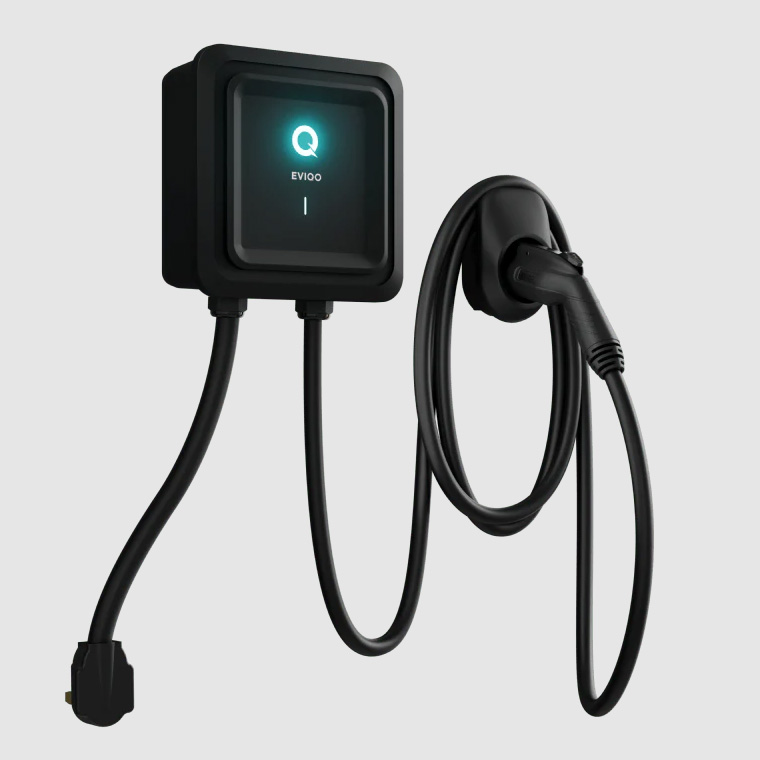
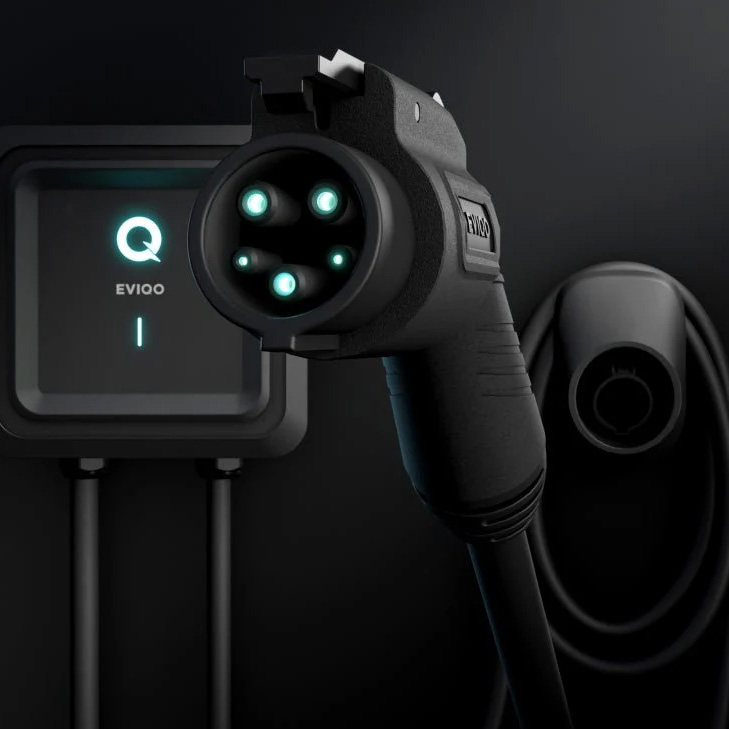
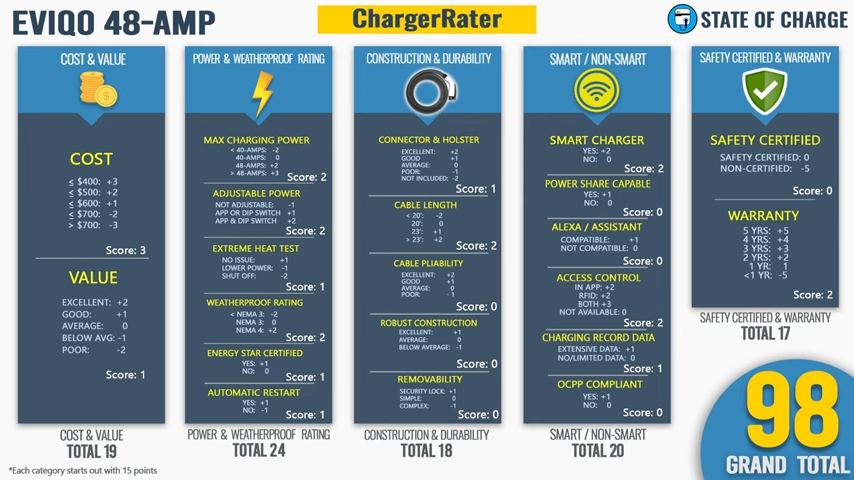
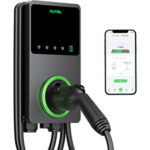

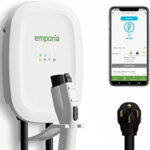
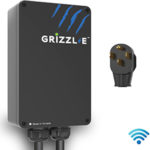


0 Comments